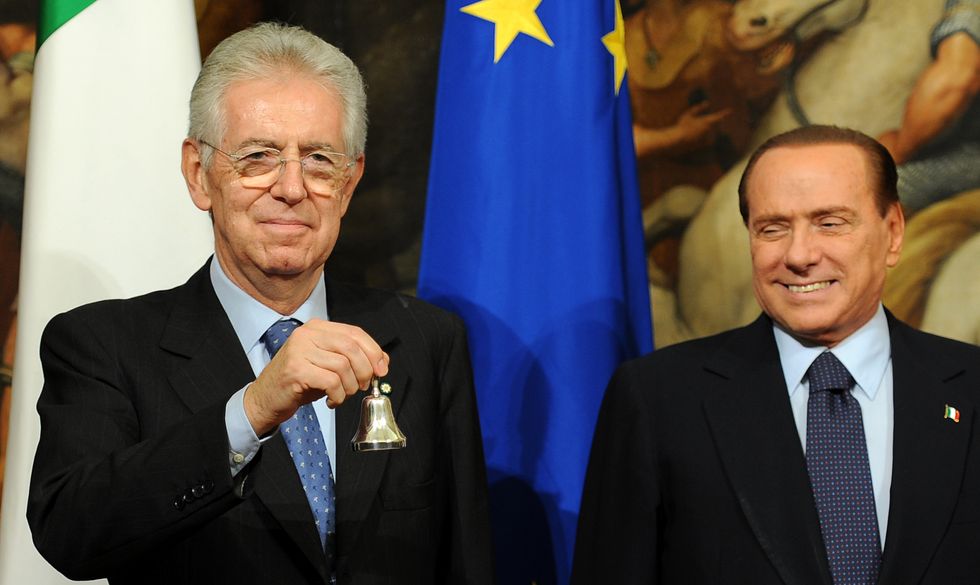Monti has rediscovered liberal reforms (but don’t tell anyone)
Brunetta’s streamlining, Gelmini’s meritocracy in universities, the will to reform the labor market: the government is moving along pre-existing tracks
by Giampiero Cantoni*
Mario Monti is the no. 1 Berlusconian of them all? OK, I'm being provocative. But let's just think about what the government has been doing these past weeks. Monti has taken on courageous reform of retirement benefits from the standpoint of cross-generational equity.
He has initiated a major liberalization plan - some measures of which are more incisive, others less-so and certainly not far-reaching enough, but he has succeeded in communicating to the country that the Italian economy has to be freed of its straight-jacket. He has opened up discussion on the abolition of the legal value of a university degree.
He has initiated roundtable discussions on reform of the labor market, speaking frankly from the get-go about the need for flexibility and reform of article 18. He has announced that a roundtable on tax reform will be set up soon in order to shift taxation from people to property.
He has also expressed acknowledgement (albeit lukewarm) of continuity with the Berlusconi government.
Praise goes to the Prime Minister. The great George Orwell said that, "Sometimes the first duty of intelligent men is the restatement of the obvious." What is obvious is that Italy still needs a major liberal revolution. The liberal revolution the Center-Right was not able to achieve, and not because of Berlusconi.
The impossibility of moving from intent to action is the extremely serious limitation of our deadlocked system.
Not to mention the totally hostile climate of the war machine of the media, judiciary and political opposition. With Berlusconi as Prime Minister, the content of his political message was totally ignored. The media was obsessed solely with his personal affairs.
The streamlining measures promoted by Renato Brunetta were relegated to the inside pages, but when the technocrat Patroni Griffi who worked previously with Brunetta does the same things, they make the front page. When it was Valentina Aprea or Mariastella Gelmini talking about abolishing the legal value of university degrees (to-date, Gelmini is the only Education Minister to have brought a bit of meritocracy into Italian universities), waves of students came out to demonstrate in the streets.
If the Monti government does it, it marks the start of a reasonable discussion.
From a Hegelian standpoint, I would like to say that Monti would be impossible without Berlusconi. Berlusconism took on all the slings and arrows of those who could not stand his leadership. And now it has become a bipartisan agenda shared by the leader of the former opposition party, Pier Luigi Bersani, who says they are with Monti all the way.
If the Left had a shred of intellectual honesty, it would admit that today we have all become Berlusconians. The Center-Right was not able to implement its reform program. It was not able because of the exaggerated reaction of those with veto power which found perhaps unconscious but willing support in informed public opinion.
And yet, again speaking from a Hegelian perspective, I would say nothing has happened in vain. Berlusconism may have lost the political battle, but it has won the cultural one. I do not agree with Pierluigi Battista, an otherwise good journalist, who in the culture supplement to Corriere della Sera declared the end of "the liberal illusion".
The marching orders of the new government and those who support it - starting with Corriere della Sera itself - are all liberal. On the front page of Repubblica there have arrived such liberal thinkers as Alessandro De Nicola and Alberto Bisin. I'm not saying they are Berlusconians. But before Berlusconi, those marching orders - lower taxes, lower public spending, legislative and regulatory simplification and welfare reform - were uttered by no one in Italy.
Today they are the message and agenda of a government that enjoys the consensus of all the major political parties. With Berlusconi out of the picture, ironically Berlusconism has become hegemonic. A sign that, even without realizing it, the Berlusconi everyone loved to hate ploughed the way: he prepared Italy for the future.
*Professor of International Economy, Senator for the PDL party and president of the Defense Committee

